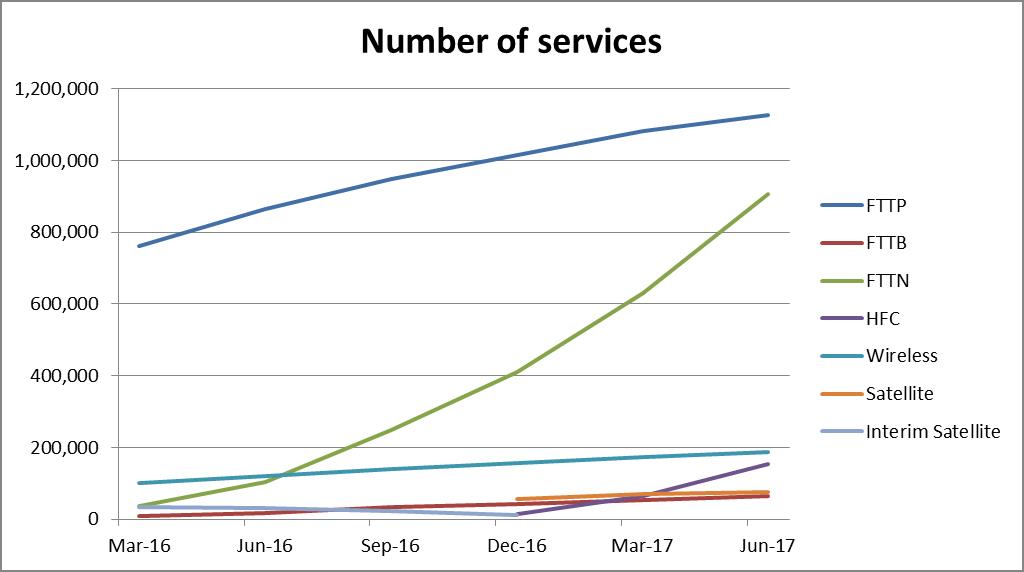- Details
ACCAN welcomes Telstra’s announcement that it will no longer offer third party mobile subscriptions to its customers from 3 December, 2017. Our recent survey found that as many as 1.9m consumers across Australia have found unexpected third party charges on their phone bills in the previous six months.
“We congratulate Telstra on stepping up and taking action to stop their customers from getting slugged by unwanted third party subscriptions,” said ACCAN CEO, Teresa Corbin. “Consumers have had to put up with these unexpected charges far too long.”
While this is a welcome move, ACCAN is calling for stricter regulation on third party billing because so many consumers are getting caught out (see below for additional safeguards we are calling for).
Read more: Telstra customers at reduced risk of unexpected third party charges
- Details
ACCAN welcomes the ACCC’s guidance to retail service providers (RSPs) on broadband speed claims released today. The guidance should help clear up the consumer confusion around broadband speeds. The informative labels that the ACCC has suggested (basic evening speed, standard evening speed, standard plus evening speed and premium evening speed) will help consumers better understand the speeds they can expect from their services, and provide a useful guide on what level of service performance they are buying.
“At the moment consumers are unable to tell what speed they can expect from a service during busy periods,” said ACCAN CEO, Teresa Corbin. “The ACCC’s advice to RSPs to focus their marketing on speed performance during busy periods will help consumers to know what speeds their services will actually deliver during peak times.
- Details
5G mobile broadband services are expected to deliver many benefits and increased capacity services for consumers. The ACMA is examining the use of a spectrum band (3.6GHz) for this use in the near future.
- Details
Since May 2016 nbn has been attempting to change the rules under which it operates in a document called the Special Access Undertaking (or SAU). These changes need to be approved by the ACCC. Primarily, this is to include other technologies (HFC, FTTN and FTTB) in the SAU. After the ACCC refused to accept its last proposed changes, nbn has revised the document again.
- Details
Every quarter the ACCC releases a report on the services operating over the NBN wholesale network. The report provides some interesting insights into the NBN, here are some that we find useful.
Number of services
The report shows that over 2.5 million premises are connected to the NBN as at June 2017.
Fibre to the Premises (FTTP) is the primary technology used. The number of services over both Fibre to the Node (FTTN) and Hybrid Fibre-Coaxial (HFC) technologies are increasing at a fast rate. The graph below charts the number of services for each quarter by access technology.

Figure 1: Number of services by access technology1
Write comment (0 Comments)- Details
The ACCC requires nbn to report quarterly on the number of services operating on its network. The data provides transparency about the types of service sold by nbn (for example, by technology and speed level) and which telecommunications providers are buying what. The ACCC releases some of the data collected to the public. (to understand why this data is so useful see our blog). The ACCC recently consulted about the usefulness of this reporting and if it should continue.
- Details
 Getting remote communities connected can be difficult due to the tyranny of distance. Recently we’ve heard some great stories about retail service providers, infrastructure providers and other organisations that are helping to connect Indigenous consumers in some of the most remote parts of Australia. In this article we’ll look at some of the ways this is being achieved.
Getting remote communities connected can be difficult due to the tyranny of distance. Recently we’ve heard some great stories about retail service providers, infrastructure providers and other organisations that are helping to connect Indigenous consumers in some of the most remote parts of Australia. In this article we’ll look at some of the ways this is being achieved.
Satellite broadband provider, Activ8me, is working with the Australian Government to improve access to telecommunications services in remote Indigenous communities.
Read more: Connecting remote Indigenous communities
Write comment (0 Comments)- Details
ACCAN is seeking nominations for Directors to fill three (3) vacancies on its Board.
In accordance with the ACCAN Constitution, the 2017-2018 ACCAN Board will consist of nine (9) members1. Six (6) positions are continuing Directors from the 2016-2017 Board. Three (3) Directors are retiring from the Board but may be eligible for re-election as stated in the ACCAN Constitution.
In accordance with the ACCAN Constitution Board members are elected for a three year term.
Read more: Call for nominations for the ACCAN Board
Write comment (0 Comments)- Details
Migrating to the National Broadband Network (NBN) is a complex process. It requires the coordination of a number of parties including Telstra, nbn, consumers and retail service providers. The Department of Communications and the Arts has revised its migration framework principles, to try to ensure that consumers and businesses experience a smooth transition.
- Details
ACCAN has submitted to the review of the Mobile Premium Services (MPS) Code, conducted by Communications Alliance. MPS deliver paid information and entertainment to your mobile using 19xx text messaging, which is then charged to your mobile phone bill. The MPS Code sets out industry rules and consumer safeguards for mobile service providers (for example, Telstra, Optus and Vodafone) and 19xx third party providers (for example, Oxygen8 Australia, Mobile Embrace).
ACCAN’s research, Third Party Charges: Consumer Experiences and Expectations, shows that stronger consumer safeguards for MPS and other third party services are needed. Current arrangements are not adequately protecting consumers from unsolicited third party charges, and poor industry practices.
- Details
In a project funded by ACCAN, researchers at The University of Sydney analysed 61 top-rated mental health apps available to Australian consumers.
Mental health apps commonly collected consumer data, requested that consumers make in-app purchases, and made health claims. Although this is normal in the app world, we thought, “How would this stand up in the real world?”
![[Jane looking at the hand massage signs. Thinks, “hmmm…just what I need”]](/images/content/Article%20pictures/Panel1_v2.jpg)
Read more: Navigating mental health apps
Write comment (0 Comments)- Details
Communications Alliance, the telecommunications industry association, is proposing that the industry code ACIF C609:2007 Priority Assistance For Life Threatening Medical Conditions be replaced with a guideline. ACCAN opposes replacing this long-standing consumer protection Code with a guideline. ACCAN asserts that consumer and community safety and certainty are better protected by maintaining the Code which can be monitored and enforced by the Australian Communications and Media Authority (ACMA). Our submission makes a number of recommendations to maintain the Code instead of replacing it with a guideline.
Read more: Priority Assistance For Life Threatening Medical Conditions
